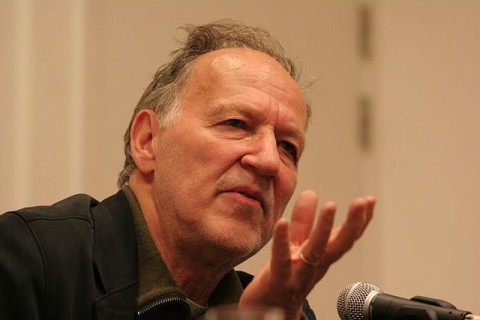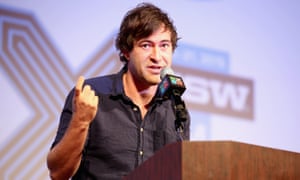By Greg Cwik
Nearly 30 years ago, "City on Fire" became a milestone of modern Hong Kong cinema. But its greater achievement is the impact it had on another filmmaker.
In 1987, up-and-coming Hong Kong filmmaker Ringo Lam directed a squalid crime film rife with violence and nebulous morality. "City on Fire," which isscreening as part of the New York Asian Film Festival's special tribute to Lam, stars Chow Yun-fat and Danny Lee as an undercover cop and murderous thief who get chummy during the planning, execution, and fallout of a botched heist during which Chow kills an innocent person. In the end, Chow tells Lee the truth, and Lee shoots Chow in the head. (Moral of the story: don't be honest.)
Two years later, John Woo released "The Killer," a milestone of Hong Kong cinema that reinvented action movies and introduced the world to a new way of rendering violence — with almost loving intimacy, without dulling the impact. Woo became an international sensation, Lam helmed a Jean-Claude Van Damme film that bombed, and western audiences forgot "City on Fire."
But Quentin Tarantino didn't forget. The motor-mouthed progenitor of the VHS generation of filmmakers seemed to have studied the film with fawning assiduousness, absorbing its visceral punch ("BAM BAM BAM BAM BAM," to quote Michael Madsen's Mr. Blonde) and crimson-colored soul, manipulating and contorting them to fit his own devious vision of honor among lowlifes. His debut feature, "Reservoir Dogs," not only set the precedent for Tarantino's whiplash-inducing dialogue and abrupt bloodshed, but, for sharp-eyed moviegoers, also marked the first instance of the filmmaker's flare for lifting shots, scenes, and ideas from his pulpy influences and suturing them into his own creation, like Victor Frankenstein's culturally-savvy cousin.
On its own terms, Lam's ragged film is pretty good, but not remarkable. As a sordid action flick -- what the kids today call "gritty" -- it stands in stark contrast to the smooth poetic style of John Woo's "The Killer," in which Chow and Lee reverse roles, with Chow playing the killer and Lee the cop. Woo, who helped change Hong Kong cinema with "A Better Tomorrow" and the one-two wallop of "The Killer" and "Hardboiled," depicts the allure and unspoken moral code of Hong Kong's underworld and neon-steeped back rooms with the sincerity of a Greek tragedy. He presents violence as an innate human quality, something people can turn to as a career as well as a means of self-expression. The various gangsters and low-lifes and law enforcement agents deal in death the way writers use words.
"City on Fire," still Lam's best film (and his only good one, unless you really dig "Simon Sez"), doesn't have the mark of an auteur like "The Killer" or "Reservoir Dogs." It almost feels ripe for salvage, a series of cool moments strewn about a messy narrative kept bearable by the inherent excitement of the endlessly watchable Chow Yun-fat shooting people, as well as Yun-fat's chemistry with Danny Lee. The moments exhumed by Tarantino are pretty obvious, but he repurposes them deftly. The botched heist around which both films revolve, Yun-fat/Tim Roth taking a bullet to the belly, and the fatal Mexican standoff with which both end are the most obvious echoes, while other parts, notably a scene of Harvey Keitel/Danny Lee unloading a pair of pistols into a cop car's windshield are lifted just because they're really cool.
Tarantino laces Lam's basic plot with his penchant for Snap! Crackle! Pop!culture references and impeccable sense of rhythm. Lam's films moves in jerks and fits, a burst of violence here, some exposition there, the sad sax score looming like a drunkard before a super-duper '80s synth comes rollicking in. Tarantino has never tried to hide his love for '70s cinema, and this is part of what makes his take on "City on Fire" so interesting. The visual and aural style bears little semblance to Lam's, or any other Hong Kong filmmaker for that matter. From the soundtrack to the roving widescreen compositions, Tarantino riffs on De Palma, Scorsese, and "The Taking of Pelham One Two Three," while his lacerating dialogue (some of which admittedly feels achingly clunky compared to his subsequent films) channels the noirs of the 1950s ("Kansas City Confidential," "The Big Combo").
Tarantino laces Lam's basic plot with his penchant for Snap! Crackle! Pop! culture references and impeccable sense of rhythm.
Tarantino drew influence from a bunch of films, as is his wont (and artistry), for "Reservoir Dogs." He's been most vocal about his debt to Stanley Kubrick's "The Killing," probably because "The Killing" is a classic and Kubrick a genius. But "City on Fire" isn't "The Killing," and Ringo Lam isn't Stanley Kubrick (though Lam does have a cool name). Doing an homage to a film that you end up bettering is kind of weird, but by now Tarantino has made a career of it. Western audiences wouldn't remember Lam's film had Tarantino not extrapolated its better moments for his own.
"City on Fire" is a strange milestone in Hong Kong cinema, but not because it's a masterpiece (it's not), not because it's unique or wholly original (it's not), not because it's the work of a great filmmaker (it's not), and not because it engendered a new film movement (it didn't). "City on Fire" is an important piece of Hong Kong cinema because it deeply inspired Tarantino, who drew inspiration and created one of the most important American films of all time (and the one that lionized indie films, to the chagrin of some). Lam, by way of Tarantino, helped bring a Hong Kong influence to American indies.
Also worth noting is that "City on Fire" remains one of the final films of its kind -- sloppy, frantic Hong Kong action movie of cops and killers shooting it out on the streets and shouting blunt exposition with an exclamation point -- before John Woo changed everything. It has a strange place in history, at once the seed from which an American film movement was cultivated, yet also a fairly forgettable example of '80s Hong Kong action in the final fleeting moments before its reinvention.
"Reservoir Dogs" has entered the pop-culture canon, and Tarantino became the face of a new vivacious breed of movie directors. He remains the most-studied filmmaker in Europe and Asia, even over the filmmakers from whom he draws inspiration. Though way too many people continue to inaccurately talk about his films as sadistically violent action movies, he's as well-known among casual moviegoers as Steven Spielberg. "The Killer" is now considered a classic by cinephiles, and helped bring Hong Kong films to western audiences. "City on Fire," of course, lacks these accolades, its legacy now little more than fodder for movie trivia nights. That's a shame: Tarantino found the elements of greatness in "City on Fire," and for that it deserves lasting respect.








